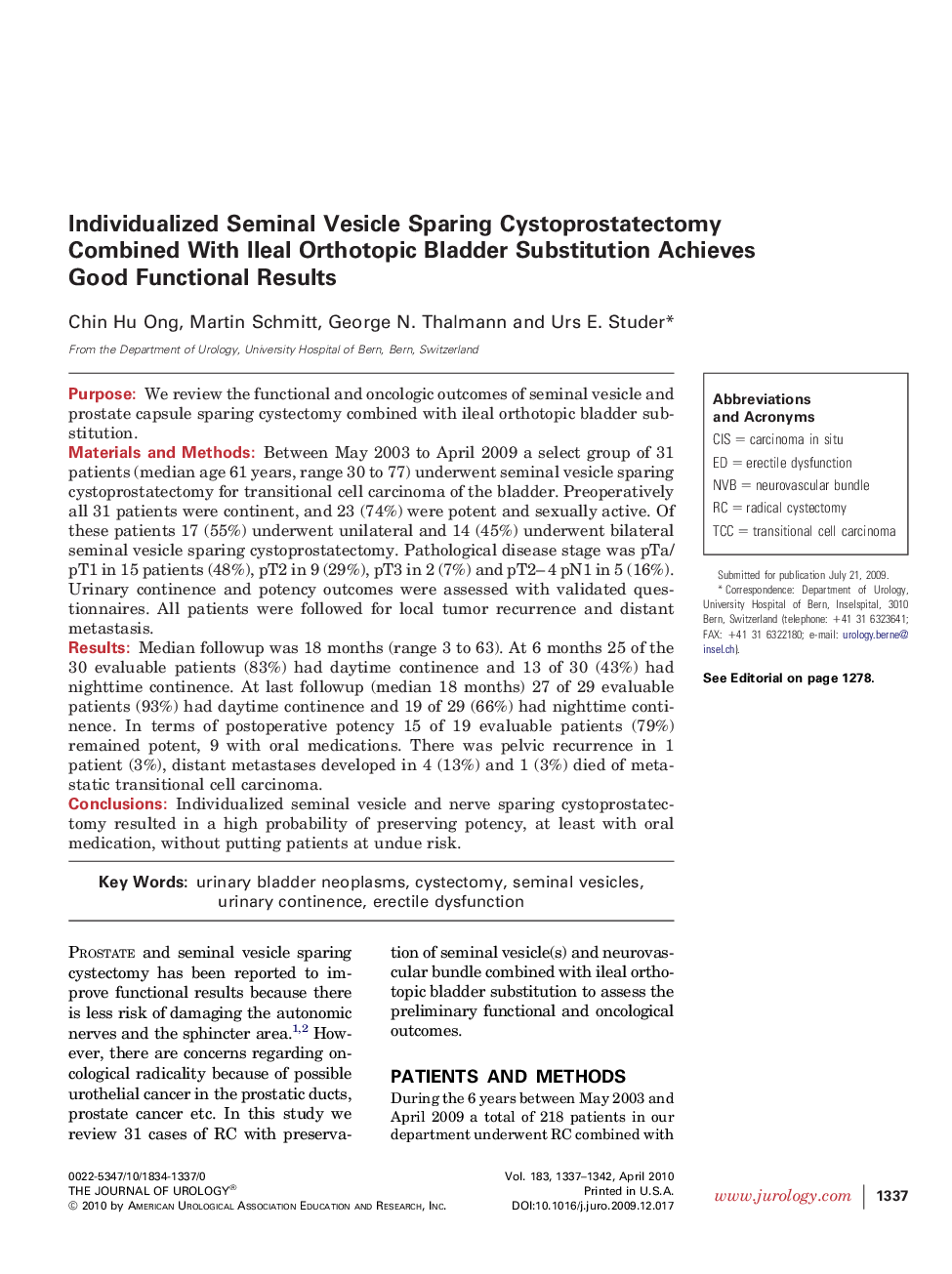| Article ID | Journal | Published Year | Pages | File Type |
|---|---|---|---|---|
| 3873938 | The Journal of Urology | 2010 | 6 Pages |
PurposeWe review the functional and oncologic outcomes of seminal vesicle and prostate capsule sparing cystectomy combined with ileal orthotopic bladder substitution.Materials and MethodsBetween May 2003 to April 2009 a select group of 31 patients (median age 61 years, range 30 to 77) underwent seminal vesicle sparing cystoprostatectomy for transitional cell carcinoma of the bladder. Preoperatively all 31 patients were continent, and 23 (74%) were potent and sexually active. Of these patients 17 (55%) underwent unilateral and 14 (45%) underwent bilateral seminal vesicle sparing cystoprostatectomy. Pathological disease stage was pTa/pT1 in 15 patients (48%), pT2 in 9 (29%), pT3 in 2 (7%) and pT2–4 pN1 in 5 (16%). Urinary continence and potency outcomes were assessed with validated questionnaires. All patients were followed for local tumor recurrence and distant metastasis.ResultsMedian followup was 18 months (range 3 to 63). At 6 months 25 of the 30 evaluable patients (83%) had daytime continence and 13 of 30 (43%) had nighttime continence. At last followup (median 18 months) 27 of 29 evaluable patients (93%) had daytime continence and 19 of 29 (66%) had nighttime continence. In terms of postoperative potency 15 of 19 evaluable patients (79%) remained potent, 9 with oral medications. There was pelvic recurrence in 1 patient (3%), distant metastases developed in 4 (13%) and 1 (3%) died of metastatic transitional cell carcinoma.ConclusionsIndividualized seminal vesicle and nerve sparing cystoprostatectomy resulted in a high probability of preserving potency, at least with oral medication, without putting patients at undue risk.
